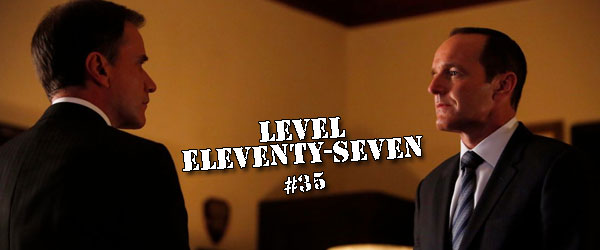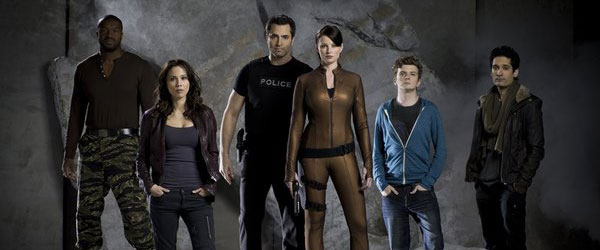Fairy Tales: The New Sparkly?
RANDOM THOUGHTS
It was only a matter of time before the shine wore off of vampires and zombies.
Really. I’m hoping the shine has worn off of the vampires. Because growing up, I never encountered a shiny vampire with sparkles. Never. And since I’ve managed to avoid Twilight like the plague, I’ve still managed to miss getting boffed over the head with that nonsense. To me, vampires are not supposed to be sympathetic characters. Vampires are evil. Vampires are bad guys.
Same thing goes for zombies, the undead, walkers – whatever you want to call them. They are relentless in their pursuit of your brains, and the only good zombie is a dismembered zombie.
Of course, in Hollywood, once a storytelling trope is successful, it becomes a template for many copycats that follow. Dracula, Interview with a Vampire and Dawn of the Dead have so many clones, it’s hard to count them. It could even be argued that we’ve had the zombie story since Mary Shelley first wrote about Dr. Frankenstein. (or is it Frahnkensteen…)
But now, finally, it seems that fatigue is setting in. Twilight is drawing to a close, with only one more movie left to release. Fright Night – the remake – pretty much gave us permission to have fun with evil vampires again, and “The Walking Dead” may quickly fizzle if the writers keep the characters moving in circles for a half-dozen episodes before something meaningful happens.
But as Spock says, “Nature abhors a vacuum.” In a time of war, recession, over-reaching governments, politicians blasting politicians with bombast, economies collapsing in Europe… it’s a safe bet that dystopian stories are going to be sitting idle for a while. Mainly because we’re living it. And as history has shown, when the going gets tough, the tough turn to stories that help them escape.
Enter the fairy tale. Or rather, re-enter.
In the last couple of years, there’s been a resurgence of fairy tale material into the mainstream literary and visual arts. Fables in the comic books, “Once Upon a Time” and “Grimm” on TV, and the upcoming fairy tale movies – Snow White and the Huntsman, Hansel and Gretel: Witch Hunters, Jack the Giant Killer, and Mirror Mirror – all have their roots in the classic fairy tale literature of ages past.
So, why are we suddenly seeing such a huge play in fairy tale land?
There is a moral to the story.
We’ve spent a number of years with stories that have ambiguous heroes. And while Harry Potter may be a “hero” in the sense that he’s the “good guy” of the story, his tactics are not too different from those of the other side – lying, cheating, breaking rules, disobeying elders… and yet he gets a pat on the head because he’s Harry Potter, the good guy.
The basis for most (if not all) of Grimm’s Fairy Tales – among others – is that there’s a lesson to be learned. Aesop’s Fables had the same purpose: to teach life lessons. How not to behave in mixed, polite company. We’ve lost that element in modern stories. Whether it’s a romantic comedy that plays sex for laughs, or a violent action thriller with more blood than the local Red Cross, stories are now crafted to be franchises with multiple story options.
So the hero can’t change much. Which means the hero doesn’t have much of a character arc. If audiences are going to visit a story universe repeatedly, they expect to see the same character. Harry Potter, James Bond, Batman, Indiana Jones, romantic comedy ingenue, they’re all pretty much the same at the end of the movie as they were at the beginning.
Fairy tales play that a little differently. There is a “moral to the story”. And it’s usually something profound in its simplicity. This is why these stories have lasted as long as they have. Because they mean something. Look at Hollywood and point to something modern that can make that claim, a story you just instinctively know will still be around in four hundred years or so.
Maybe we’re on the cusp of a Moral Reawakening. I’m not holding my breath, but it’s nice to contemplate the possibility that we could actually use stories to teach and inspire again. Either that, or Hollywood is eventually going to turn every fairy tale character into some kind of shill for a line of merchandise…
So far, “Grimm” and “Once Upon A Time” both have been pretty good about staying relatively faithful to the nature of the characters and creatures that inhabit their respective worlds. “Once” probably has more ambiguity mainly because the characters now inhabit the morally vague “real world” now, and that’s reflected in the choices they make, whereas their decisions in Fairy Tale Land are based more on “Good vs. Evil”.
I’m no sociologist or anthropologist, but I think that human beings – successful, productive ones, anyway – need structure in their lives, even when it comes to behavior. Moral ambiguity only serves to muddy the waters of what’s “acceptable” in society. Moral equivalence basically says “what’s good for you is good for you, but it may not be good for me, and that’s OK”. Except at some point, you can’t both be right about what you believe, especially if those beliefs are polar opposites of each other.
Fairy tales give us more of an absolute. And there is value to that moral of the story. And speaking of value…
The fairy tales are free.
This probably plays into the Fairy Tale Renaissance more than anything else. Fairy tales are in the public domain, which means we can simultaneously have three stories that feature Snow White. Networks don’t have to pay for the rights to adapt these stories (where they would have had to with Fables). In the age where reality TV has set the bar for “cheap to produce” television, there is always the bottom line to consider.
“Once Upon a Time” is getting more bang for its buck because the show uses a lot of green screen, and despite sometimes having effects that don’t look quite right (as was the case in “The Shepherd”), it usually manages to get the production value up. “Grimm” stays rooted in reality, which means most of its budget can go to the make-up and transformation effects, and the rest of the time, it’s a low-budget cop procedural.
How long this can last is anyone’s guess. There’s certainly a wealth of material to go through to find the most viable story nuggets. Will we get a sparkly fairy at some point?
Wait. Never mind. Fairies are supposed to sparkle.









Nicely done. This is great update on the article I wrote months ago, before these Fairytales started hitting the big and small screen. http://scifi4me.wordpress.com/2011/07/08/live-action-fantasy-no-longer-just-for-geeks/
Yes. We’re on the cutting edge! 🙂
You know it!!
This was a wonderful article, Jason…however I have to ask about your reference to both Dracula and Interview with a Vampire. Were you intending to imply that those are about making the vampire sympathetic? I understand in the case of Louis in Interview, however both Lestat and Dracula himself are considered the “bad guys.” They are truly evil vampires with evil ideals and motivations. They are attractive, which makes them even more dangerous. However, in the sense that those movies were just the forerunners for the vampire craze today, I have to say that things seem to come in circles (much like fashion, unfortunately). The Dracula movies have been coming out for years, sometimes stooping to the level of pure comedy (a la Dracula: Dead and Loving it) whereas other times inciting the beauty of the vampiric lore (a la the ORIGINAL Dracula). It’s just a cycle, and I hope we get out of this “vampires sparkle!” phase soon. My favorite vampires are ones that actually know what it’s like to taste blood.
Thanks again for the great article, Jason!
I should have been more specific with my Dracula reference. I was referring to Coppola’s version.
I think Interview may have been the beginning of the “shiny, pretty vampires” phase. And Coppola’s Dracula story did a similar thing. Even though Dracula was the “bad guy” in the story, the presentation made him somewhat of a sympathetic character because it painted him as lonely and a victim of circumstance in the prologue, where Vlad loses the love of his life. The tortured soul lost forever because his heart was broken, etc.
So, in one sense, yes, Dracula has always been a bad guy. It’s only in recent decades that we’ve had this shift over into the mindset that every bad guy must have some reason for being the bad guy, and he’s not all bad … just misunderstood.
I think “Oprah” was on too long.